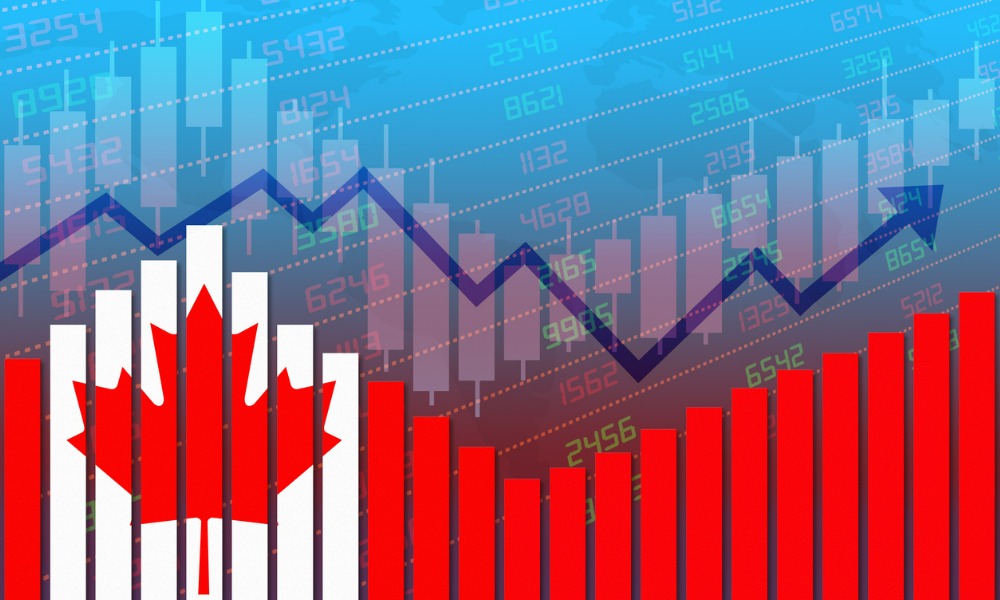We could see pandemic-style financial support for families and businesses

Trump’s tariffs on billions of dollars of Canadian goods – and retaliation from Ottawa – will be costly on both sides of the border and may mean Canada entering recession with a prolonged negative impact on growth.
That’s the warning from RBC Economics’ Frances Donald and Nathan Janzen who gave their initial reaction to the seemingly unstoppable tariffs due to come into effect after today.
“This is the most significant trade shock since the Smoot-Hawley tariffs of the 1930s, which are widely blamed for exacerbating and prolonging the Great Depression,” the duo wrote in their analysis, adding that it upends a trading relationship that has endured for a century as part of the principle that frictionless trade is the best option.
The economists warn that the magnitude of tariffs is recessionary for Canada and if sustained their “initial analysis suggests that tariffs of this size (based on many assumptions) could wipe out Canadian growth for up to three years, with the largest impacts in the first and second years.”
TD Economics’ Beata Caranci and James Orlando highlight that the duration of tariffs is a key unknown factor, but in the near-term they expect an impact on equities and the Loonie: “We would not be surprised to see the currency flirt with at least 65 US cents in relatively short order, with further downside risk as "duration" builds on tariffs.”
Again, recession is noted by TD’s economists as a significant risk for Canada, if tariffs continue for 5-6 months. This would initially lead to a shallow recession but a prolonged period of tariffs would be expected to deepen the contraction and have a negative impact on employment. It could lead governments to introduce financial support for households and businesses akin to that seen during the pandemic.
CIBC Economics raise the possibility of legal challenges to the validity of President Trump’s actions, given that the act used to impose them was previously used for sanctions rather than tariffs. While they expect near-term challenges, the longer-term impact will be analyzed in a forthcoming piece of research from the team.
In their commentary they provide a snapshot of that research and opine that with “a permanent two-way tariff war with the US at various levels…. the level of real GDP could be 5% lower than in our prior forecast by the end of 2026, and while that outcome could be cushioned with a sufficient monetary and fiscal response (including a recycling of tariff revenue), the level of GDP at full employment will be permanently on a weaker path due to the reduced two-way trade.”
For now, the story continues to unfold.



